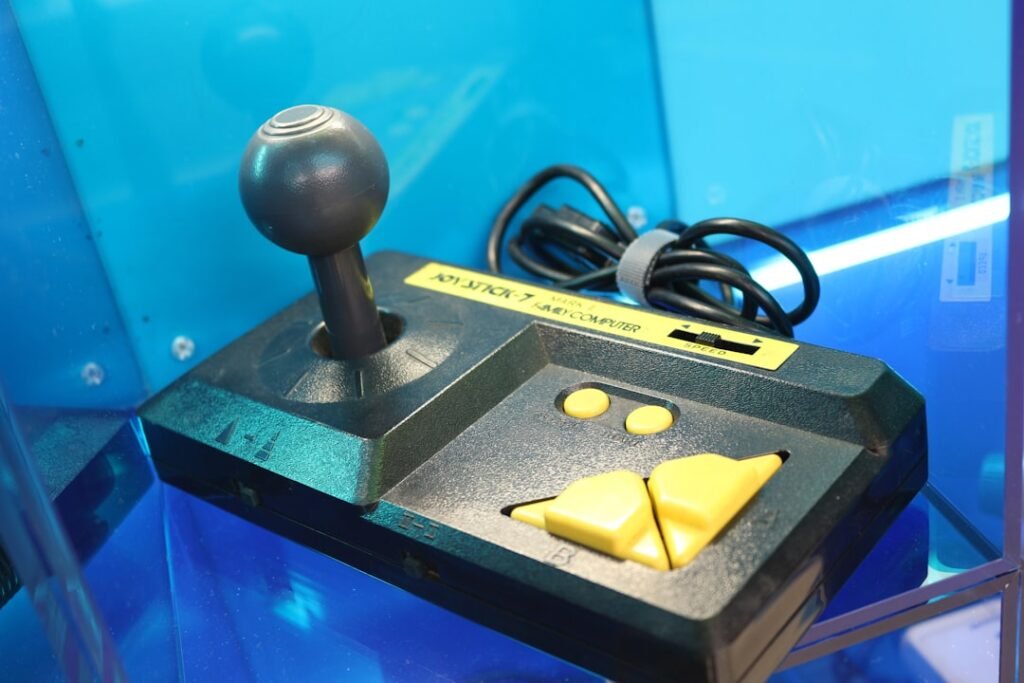Now Reading: Mastering [Mobile Game]: 5 Winning Tips
-
01
Mastering [Mobile Game]: 5 Winning Tips
Mastering [Mobile Game]: 5 Winning Tips
![Photo "tips for winning in [Mobile Game]"](https://gamers.co/wp-content/uploads/2025/05/image-142.jpg)
As I delve into the world of gaming, one of the first things I realize is the importance of understanding the game mechanics. Each game has its own set of rules and systems that dictate how players interact with the environment and each other. Whether it’s a complex role-playing game or a simple puzzle game, grasping these mechanics is crucial for success.
I often find myself spending time in tutorials or practice modes, familiarizing myself with the controls, objectives, and unique features that each game offers. This foundational knowledge not only enhances my gameplay experience but also allows me to make informed decisions during critical moments. Moreover, understanding game mechanics extends beyond just knowing how to play; it involves recognizing the underlying systems that govern gameplay.
For instance, in strategy games, I pay close attention to resource management and unit strengths. In action games, I analyze enemy patterns and attack timings. By dissecting these elements, I can anticipate challenges and adapt my approach accordingly.
This analytical mindset transforms my gaming experience from mere button-mashing to a thoughtful engagement with the game’s design, ultimately leading to improved performance and enjoyment.
Key Takeaways
- Understanding the game mechanics is crucial for success in any game.
- Developing effective strategies can give you a competitive edge over other players.
- Utilizing power-ups and boosters can help you achieve higher scores and progress faster in the game.
- Managing resources wisely is essential to avoid running out of crucial items during gameplay.
- Improving reaction time and reflexes can help you react quickly to in-game challenges and obstacles.
Developing Effective Strategies
Learning from Others
Once I have a solid understanding of the game mechanics, the next step is to develop effective strategies tailored to my playstyle and the specific challenges presented by the game. I often start by observing successful players and analyzing their tactics. This could involve watching gameplay videos or reading strategy guides that highlight different approaches to overcoming obstacles.
Experimentation and Trial
By doing so, I can identify patterns and techniques that resonate with me, which I can then incorporate into my own gameplay. In addition to learning from others, I also experiment with my own strategies. I find that trial and error is an invaluable part of the learning process.
Refining Strategies
For example, in competitive games, I might try different character builds or team compositions to see what works best for me. This experimentation not only helps me discover new tactics but also keeps the gameplay fresh and exciting. Over time, I refine my strategies based on what yields the best results, allowing me to adapt to various situations and opponents effectively.
Utilizing Power-Ups and Boosters

Power-ups and boosters are integral components of many games, providing players with temporary advantages that can turn the tide in their favor. Understanding when and how to utilize these items is a skill I continuously work on mastering. In fast-paced games, I often find myself in situations where a well-timed power-up can mean the difference between victory and defeat.
Therefore, I make it a point to familiarize myself with the various power-ups available and their effects on gameplay. Strategically using power-ups requires foresight and timing. For instance, in racing games, I’ve learned that saving a speed boost for a crucial moment—like overtaking an opponent or navigating a tricky turn—can maximize its effectiveness.
Similarly, in battle royale games, activating shields or health boosts at the right moment can provide me with the edge needed to survive intense encounters. By being mindful of my surroundings and anticipating when to deploy these advantages, I can significantly enhance my chances of success.
Managing Resources Wisely
Resource management is another critical aspect of gaming that I’ve come to appreciate deeply. Whether it’s managing health points, ammunition, or in-game currency, making informed decisions about resource allocation can greatly impact my overall performance. I’ve learned that being conservative with resources often pays off in the long run; for example, in survival games, hoarding supplies can mean the difference between life and death during critical moments.
I also recognize that different games have varying resource management systems. In some cases, I need to prioritize immediate needs over long-term goals, while in others, strategic planning is essential for success. By developing a keen sense of when to spend or save resources, I can navigate challenges more effectively.
This skill not only enhances my gameplay but also fosters a deeper understanding of the game’s mechanics and design.
Improving Reaction Time and Reflexes
In many gaming scenarios, quick reflexes and sharp reaction times are paramount. As I engage in fast-paced action games or competitive multiplayer matches, I often find myself needing to respond swiftly to unexpected events. To improve my reaction time, I dedicate time to practice drills that focus on hand-eye coordination and quick decision-making.
Simple exercises like playing rhythm games or engaging in reflex training apps have proven beneficial in honing these skills. Additionally, I’ve discovered that maintaining a calm mindset during intense gameplay can significantly enhance my performance. When faced with high-pressure situations, I remind myself to breathe and stay focused rather than succumbing to panic.
This mental clarity allows me to react more effectively and make better decisions under pressure. Over time, I’ve noticed a marked improvement in my ability to respond quickly and accurately, which has translated into more successful gaming sessions.
Staying Consistent and Persistent

Creating a Routine for Growth
By setting aside time each week to play and refine my skills, I create a routine that fosters growth. This commitment not only helps me stay engaged but also allows me to track my progress over time.
Overcoming Challenges
Moreover, persistence plays a crucial role when faced with challenges or setbacks. There have been instances where I’ve struggled against difficult opponents or complex levels, but instead of giving up, I remind myself that every failure is an opportunity to learn.
This mindset shift has transformed how I view challenges; rather than seeing them as obstacles, I now embrace them as stepping stones toward mastery.
Learning from Mistakes and Analyzing Gameplay
Mistakes are an inevitable part of any gaming experience, but how I respond to them can make all the difference in my growth as a player. Instead of viewing failures as discouragements, I take them as valuable learning opportunities. After each gaming session, I often reflect on my performance—what went well and what could be improved.
This self-analysis allows me to identify patterns in my gameplay that may need adjustment. In addition to personal reflection, I also seek feedback from others when possible. Engaging with fellow gamers or watching replays of my gameplay can provide insights that I might have missed during the heat of battle.
By combining self-analysis with external feedback, I create a comprehensive understanding of my strengths and weaknesses. This continuous cycle of learning helps me refine my skills and approach each new challenge with greater confidence.
Engaging with the Game Community and Seeking Advice
Finally, one of the most rewarding aspects of gaming is engaging with the community surrounding it. Whether through online forums, social media groups, or local gaming events, connecting with fellow players has enriched my experience immensely. Sharing tips, strategies, and experiences fosters a sense of camaraderie that enhances my enjoyment of the game.
I actively seek advice from more experienced players who can offer insights into advanced techniques or strategies that I may not have considered. Participating in discussions about game mechanics or recent updates keeps me informed about changes within the gaming landscape. Additionally, collaborating with others during multiplayer sessions allows me to learn from their playstyles while contributing my own unique perspective.
This exchange of knowledge not only improves my skills but also deepens my appreciation for the games I love. In conclusion, my journey through gaming has been shaped by a combination of understanding mechanics, developing strategies, managing resources wisely, improving reflexes, staying persistent, learning from mistakes, and engaging with the community. Each aspect contributes to a holistic approach that enhances both my skills and enjoyment of gaming as a whole.
If you’re looking for tips to improve your skills in [Mobile Game], you may also be interested in understanding the reasons behind delayed game releases. Check out this insightful article on understanding delayed game releases and developer explanations to gain a better understanding of the industry. By staying informed about the challenges developers face, you can better appreciate the hard work that goes into creating your favorite games.
FAQs
What are some general tips for winning in [Mobile Game]?
Some general tips for winning in [Mobile Game] include practicing regularly, learning the game mechanics, understanding the different characters or units, and developing effective strategies.
How can I improve my skills in [Mobile Game]?
To improve your skills in [Mobile Game], you can watch tutorial videos, join online communities to learn from other players, and analyze your own gameplay to identify areas for improvement.
What are some common mistakes to avoid in [Mobile Game]?
Common mistakes to avoid in [Mobile Game] include rushing into battles without a plan, neglecting to upgrade characters or units, and underestimating the importance of teamwork and communication in multiplayer modes.
What should I focus on when playing [Mobile Game]?
When playing [Mobile Game], it’s important to focus on understanding the strengths and weaknesses of different characters or units, mastering the game’s mechanics, and adapting your strategies based on the specific objectives of each game mode.
How can I stay competitive in [Mobile Game]?
To stay competitive in [Mobile Game], you can stay updated on the latest game updates and patches, participate in regular practice sessions, and seek feedback from experienced players to continuously improve your skills.



























